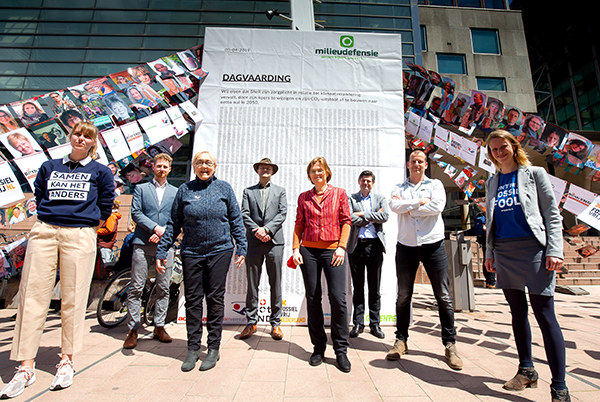The Milieudefensie v Shell decision: Where next for corporate climate litigation? Video

In May 2021, the Hague District Court made headlines when it ordered Shell to increase its emissions reduction efforts. The decision was issued in a case first brought by Dutch NGO Milieudefensie, alongside co-plaintiffs including several other environmental NGOs and more than 17,000 citizens in 2019. The court held that Shell had an obligation to reduce greenhouse gas emissions through its policies in order to protect citizens from the impacts of climate change. It ordered Shell to reduce its greenhouse gas emissions by 45% relative to 2019 levels by 2030. The judgement applied to both emissions produced directly by Shell in the course of its operations (scope 1 and 2), as well as those caused when customers use Shell’s energy products (scope 3). Shell appealed this judgment and after a series of hearings held earlier this year, the decision is now expected on 12 November 2024.
The case has been heralded as a landmark moment in corporate climate responsibility and the application of human rights principles to the climate crisis. While the case was brought under Dutch tort law, the interpretation of domestic law was heavily influenced by international soft law instruments on business and human rights, including the UN Guiding Principles of Business and Human Rights and the OECD Guidelines for Multinational Enterprises.
This case is part of a larger group of cases which have been described as “corporate framework” cases. This type of litigation calls into question the legitimacy of the internal climate policy framework for a company or group of companies. Typically, these cases seek more mitigation ambition from companies, often arguing for alignment with the Paris Agreement or net zero goals. There are now more than 20 such cases around the world, many of them yet to be decided. The outcome of the appeal is likely to be highly significant for the prospects of such cases, as well as the prospects of potential future cases that are yet to be filed.
This event, brought together a speaker from Milieudefensie, the NGO leading the case, and scholars from LSE and beyond. The speakers discuss the judgment and subsequent appeal, and also reflect on its possible consequences for future climate cases. Panellists also discuss the scientific and economic evidence presented in the course of proceedings.
Speakers:
- Chair: Dr Joana Setzer, Associate Professor, Grantham Research Institute, LSE
- Sjoukje van Oosterhout, Senior Team Lead for Milieudefensie in the climate case against Shell
- Dr Fergus Green, Associate Professor, University College London
- Dr Noah Walker-Crawford, Research Fellow, Grantham Research Institute, LSE
- Isabela Keuschnigg, Legal Officer at Opportunity Green and Research Assistant, Grantham Research Institute, LSE

